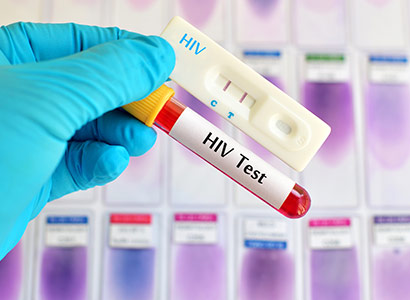Study confirms that HIV treatment stops spread of virus to partners
 A new study has shown once again the power of HIV treatment in blocking the transmission of the virus between HIV positive people and their negative partners, even without using condoms.
A new study has shown once again the power of HIV treatment in blocking the transmission of the virus between HIV positive people and their negative partners, even without using condoms.
The Partner study, the world’s largest study of people with HIV who have had condomless sex with their HIV negative partners, found that neither gay men nor heterosexual people with HIV transmit the virus to their partner, as long as they are on suppressive antiretroviral treatment.
The study monitored 888 couples from 14 different European countries, in which one of the partners was on effective treatment for HIV. Of the 888 couples, 548 were heterosexual and 340 were gay men.
All the couples had sex regularly without using a condom. They have now been monitored for several years and not one instance of transmission of the virus was recorded.
The results were published in the prestigious Journal of the American Medical Association.
While 11 HIV-negative partners were ultimately infected with HIV, researchers from University of Liverpool’s Institute of Infection and Global Health confirmed through genetic testing that they were infected by someone other than their regular partners who were on treatment.
“The results clearly show that early diagnosis of HIV and access to effective treatment are crucial for reducing the number of new HIV cases,” said Professor Jens Lundgren from Rigshospitalet, senior author of the study and head of CHIP (the Centre for Health and Infectious Diseases).
“As soon as a patient with HIV is on treatment with a suppressed viral load, the risk of transmission becomes minimal,” he explained.
In an editorial, Dr. Eric Daar, of the Harbor-UCLA Medical Center in California, added a note of caution when it came to anal sex among men who have sex with men (MSM).
He pointed out that only 45% of the gay couples in the study engaged in receptive anal sex with ejaculation inside the uninfected partner. This relatively small number, he said, made the results with regard to the gay couples less certain.
“…Clinicians need to be clear that even though the overall risk for HIV transmission may be small, the risk is not zero and the actual number is not known, especially for higher-risk groups such as MSM,” Daar said.
While HIV treatment may be very effective in limiting transmission of the virus, the additional use of condoms offers more certainty and also has the benefit of protection against other sexually transmitted infections.
Gay couples in the study will continue to be monitored for three additional years to obtain even more data in this area for anal sex.
- Facebook Messenger
- Total132
Leave a Reply